In today’s society, heavily reliant on portable electronic devices, Portable Power Stations have become essential companions for individuals during travel and everyday life. However, to ensure the safety and consistency of these Portable Power Stations, they need to undergo a series of rigorous certifications.
The certification requirements for Portable Power Stations primarily include national recognition, safety certification, battery certification, EMC certification, and environmental certification. These certifications are not only the responsibility of manufacturers but also crucial for safeguarding user rights and safety.
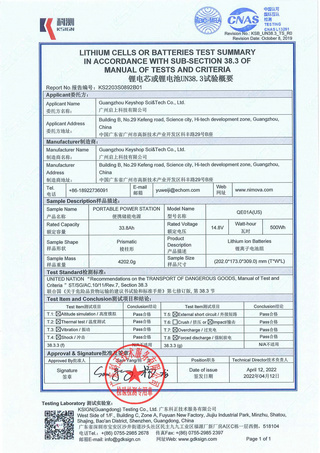
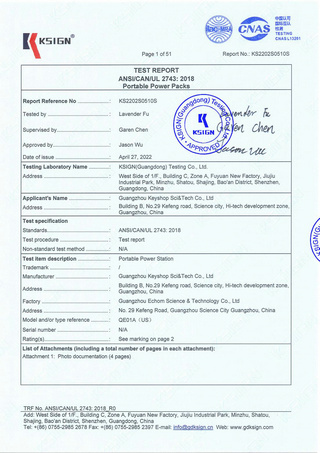
Firstly, national recognition plays a vital role. Different countries or regions may have their own certification institutions, such as China Quality Certification Center (CQC) or China National Quality Supervision, Inspection and Quarantine Bureau (CIQ) in China. National recognition allows Portable Power Stations to enter the market and prove compliance with relevant domestic regulations and safety standards.
Secondly, safety certification is of paramount importance. The safety of power stations is crucial due to the involvement of components like batteries, charging circuits, and heat dissipation systems. Obtaining international or regional safety certifications, such as CE certification in Europe, or UL certification in the United States, ensures that the product does not pose a threat to personal safety during its normal use.
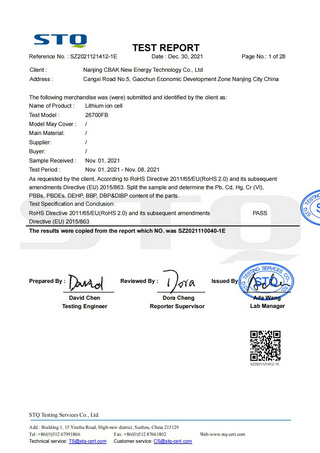
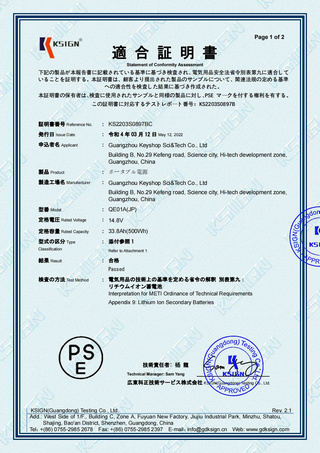
Battery certification is another critical factor that cannot be overlooked. Batteries are the core components of Portable Power Stations and must meet specific battery quality and safety standards. Certifications such as UN38.3 and IEC62133 ensure that batteries do not undergo short-circuiting, overheating, or explosion, ensuring user safety during transportation and usage.
Electromagnetic Compatibility (EMC) certification is also indispensable. Portable Power Stations generate electromagnetic radiation during operation, which may interfere with other electronic devices or be susceptible to interference from other devices. EMC certifications such as CE certification in Europe and FCC certification in the United States ensure that the product meets electromagnetic compatibility requirements, reducing electromagnetic interference on other devices and minimizing its impact on human beings.
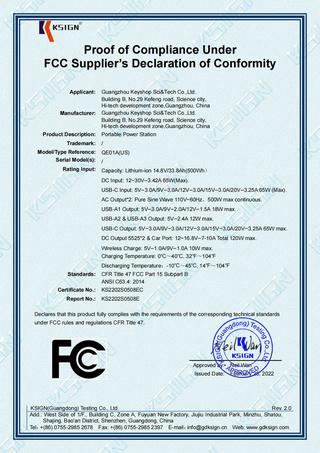
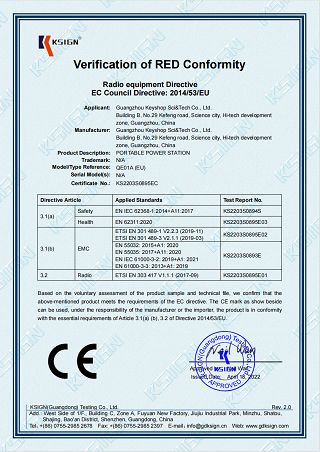
Lastly, environmental certification is crucial. In today’s focus on sustainable development and environmental protection, Portable Power Stations must meet environmental standards. RoHS directive certification restricts the use of hazardous substances in products, while energy efficiency labeling certification requires products to meet certain requirements in terms of power consumption and energy utilization efficiency, aiming to reduce energy consumption and minimize adverse environmental impacts.

a